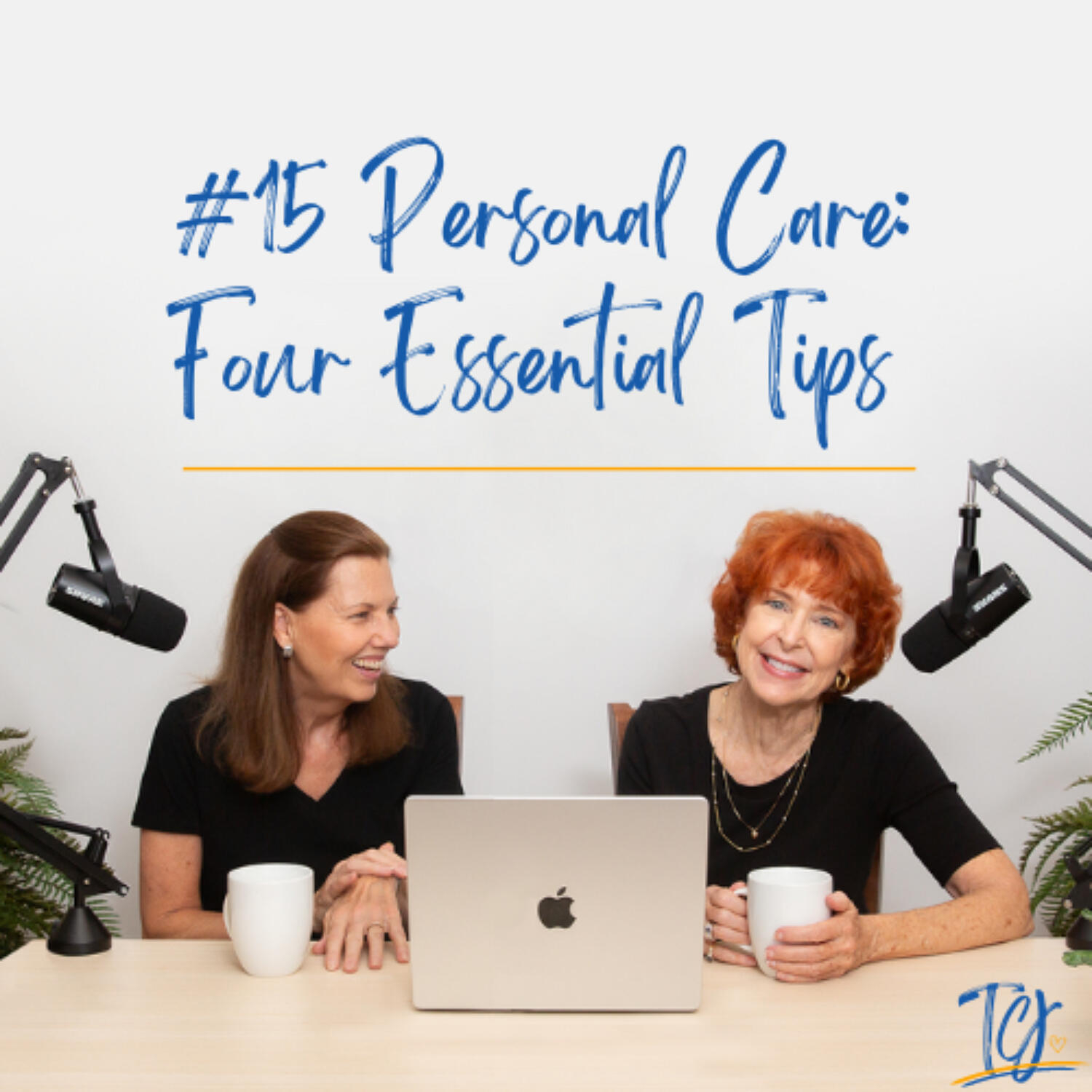Shave, Brush Teeth, Trim Nails and Hair: Four Essential Tips / Alzheimer’s and Other Dementias
- Author
- Sue Ryan and Nancy Treaster
- Published
- Tue 15 Oct 2024
- Episode Link
- https://www.thecaregiversjourney.com
As caregivers for our loved ones with Alzheimer's and other types of dementia, we've learned that shaving, trimming nails, brushing teeth and trimming hair - what we’re calling personal care - can become challenging. These challenges often arise around the same time as bathing and dressing difficulties. How we provide support for our loved one will vary based on whether they stay at home during their journey or move into a care community. Not surprisingly, personal care is an area where many tips can be provided!
Through our experiences, what we've learned from support groups, and others on their journeys, we've developed four initial areas of tips to help you and your care receiver with their personal care.
Rate, Subscribe and Share Your Tips on Social Media!
Please click here to review, follow or subscribe to our podcast.
If you don’t see your preferred platform click on Podchaser and click at the bottom “Write my review”
- You can log in with Twitter, Facebook or Google
- On the right you’ll see a box with “Follow”, “Rate and Review” and “Share”
Connect with us and share your tips:
- Website: https://www.thecaregiversjourney.com
- Instagram: https://www.instagram.com/thecaregiversjourney/
- Facebook: https://www.facebook.com/TheCaregiversJourneys/
- Linkedin: https://www.linkedin.com/in/suearmstrongryan/, https://www.linkedin.com/in/nancytreaster/
- Email: [email protected], [email protected]
Additional Resources Mentioned
These resources contain affiliate links so we may receive a small commission for purchases made at no additional cost to you.
- Electric razor
- For men here
- For women here
- Oral swabs here
- Super soft toothbrush here
- Fresh Breath mouthwash here
- Electric hair trimmers here
Full Show Notes https://thecaregiversjourney.com/personal-care-four-essential-tips-alzheimers-and-other-dementias/
Takeaways
Understanding Personal Care Challenges in Dementia Care
Tip 1: Mastering the Art of Shaving
Transition to an electric razor as early as possible.
- Begin your support by prompting and supervising, gradually inserting yourself into the process.
- Try shaving when your care receiver is calm, possibly after meals or during naps.
- Aim to shave men's facial hair at least every other day to prevent discomfort from longer hair. For women, transition to electric razors for safety. Women also tend to become comfortable with letting their body hair grow.
- As early in their diagnosis as possible, get a thorough dental examination. If there is any dental work that's important to be completed, do it while they still understand and can participate.
- Consider transitioning to a dentist specializing in disabilities.
- If possible increase dental visits to every three months.
- Start by reminding your care receiver and supervising their tooth brushing.
- Gradually take over the process - for example, begin by handing them their toothbrush, transition to handing them their toothbrush with toothpaste on it, then transition to beginning to brush their teeth.
- Use a soft-bristled toothbrush and less toothpaste to prevent swallowing.
- Consider using disposable oral swabs with mouthwash for additional cleaning.
Tip 4: Hair Care and Trimming
- Take photos of the hair style your loved one has.
- If they color their hair, talk about keeping it colored or letting it become their natural color.
- There are hair stylists who will come to your home instead of you having to go into a salon.
- Consider transitioning to easier-to-manage hairstyles.
- Learn basic haircutting techniques or ask their stylist to teach you.
- For women, longer hair in a soft bun might be easier than short styles.
- Personal care trimmers are very helpful for both men and women for eyebrows, hair in the ears and nose.
Read More in This Blog here
